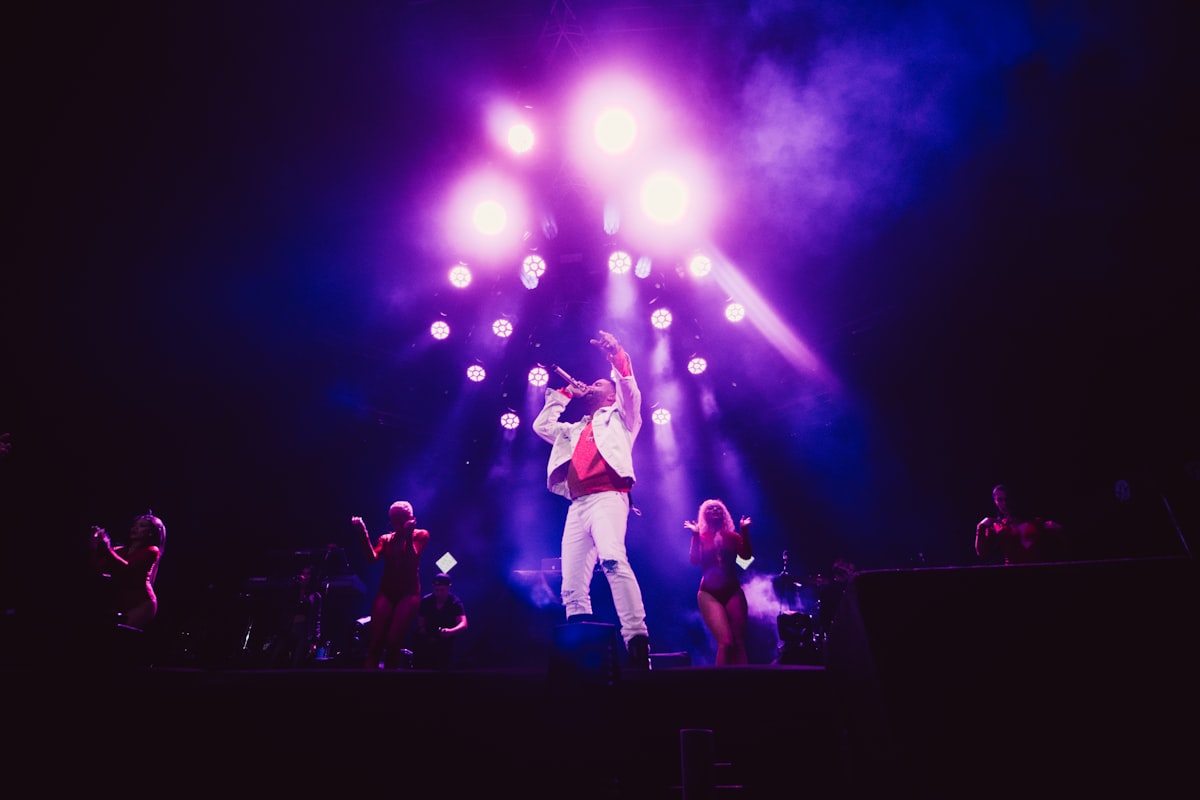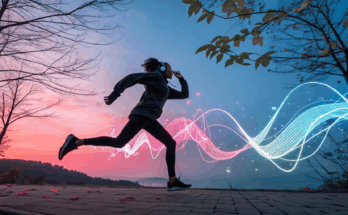Puerto Rican-born reggaeton music has gained international attention in recent years. Millions of fans worldwide have fallen in love with reggaeton thanks to its contagious beats, endearing melodies, and flashy dance moves. We’ll examine the musicians who have influenced the genre, examine its past, present, and future prospects, and explore the history and impact of reggaeton in this piece. Puerto Rico’s late 1980s and early 1990s are when reggaeton first emerged.
Key Takeaways
- Reggaeton originated in Puerto Rico in the 1990s, blending elements of reggae, hip-hop, and Latin American music.
- Daddy Yankee is considered the king of reggaeton and rose to fame with his hit song “Gasolina” in 2004.
- Ivy Queen, known as the queen of reggaeton, broke barriers for women in the genre and paved the way for future female artists.
- Don Omar is a reggaeton pioneer who helped popularize the genre globally and collaborated with major artists like Daddy Yankee.
- Tego Calderón is known for his socially conscious lyrics and has been credited with bringing more depth and substance to reggaeton.
- Nicky Jam’s journey to success was marked by personal struggles and setbacks, but he eventually became a reggaeton superstar with hits like “El Perdón.”
- J Balvin has become a global ambassador for reggaeton, blending traditional reggaeton with pop and EDM influences.
- Ozuna is a rising star in the genre, known for his smooth vocals and collaborations with major artists like Cardi B and Selena Gomez.
- Bad Bunny has been hailed as a revolutionary voice in reggaeton, challenging traditional gender roles and societal norms through his music.
- The future of reggaeton looks bright with a new generation of artists like Anuel AA and Karol G poised to continue pushing the genre forward.
Rap, Latin American music, and reggae all found their way into the distinctive fusion of reggaeton, which was influenced by hip hop and dancehall from Jamaica. Reggaeton’s early pioneers, including Vico C and DJ Playero, experimented with different sounds & rhythms to build the genre’s foundation. Artists like Daddy Yankee, Ivy Queen, Don Omar, Tego Calderón, Nicky Jam, J Balvin, Ozuna, and Bad Bunny were among the pioneers of Puerto Rican reggaeton’s evolution and rise to prominence. Known as the “King of Reggaeton,” Daddy Yankee was instrumental in making the genre well-known outside of Puerto Rico.
Daddy Yankee made Reggaeton popular with his breakthrough song “Gasolina” in 2004, opening the door for other musicians to follow. Globally, audiences were enthralled by his distinct style, captivating onstage persona, & contagious enthusiasm. It is impossible to overestimate the influence of Daddy Yankee on the genre and popular culture.
He has worked with a wide range of musicians from various genres, such as Luis Fonsi on the worldwide hit “Despacito,” which rose to become one of the all-time most streamed songs. Thanks to his contributions to reggaeton, Daddy Yankee has cemented his place as the genre’s true icon. Known as the “Queen of Reggaeton,” Ivy Queen has paved the way for other female artists in the genre. Ivy Queen defied gender stereotypes and opened the door for other women to thrive in a field that was dominated by men with her strong and empowering lyrics.
A role model for aspiring female artists, she is known for her distinct style and fierce stage presence. Ivy Queen’s influence on reggaeton goes beyond just her songs. She has utilized her position to address social issues & has been a strong supporter of women’s rights. Popular songs and joint ventures, like “Quiero Bailar” and “Dime,” have become global hits for her admirers.
Don Omar, who is sometimes called a reggaeton pioneer, was instrumental in creating the genre. Don Omar brought a fresh sound & aesthetic to Reggaeton in 2003 with his debut album “The Last Don,” which fused elements of Latin American music, hip hop, & reggae. His distinct approach to the genre found favor with viewers, catapulting him to renown across the globe. It is impossible to overstate Don Omar’s impact on other musicians in the genre.
His contributions to reggaeton have been instrumental in the genre’s global success, as he has worked with many artists both inside and outside of the genre. Songs and collaborations he is known for, like “Danza Kuduro” and “Pobre Diabla,” have stood the test of time. Known for his socially conscious lyrics and thought-provoking messages, Tego Calderón, also known as the conscious voice of reggaeton, offered a distinct viewpoint to the genre.
He is a voice for the downtrodden and oppressed because his music frequently tackles social issues like racism, poverty, and inequality. Beyond just his music, Tego Calderón has had a significant influence on the genre and popular culture. He has utilized his position to spread awareness of significant issues and has been a social justice advocate.
Change-seeking people now chant “Pa’ Que Retozen” and “Al Natural,” two of his well-known songs and collaborations. Perseverance and determination have been key components of Nicky Jam’s success story. Nicky Jam returned to the Reggaeton scene, reinventing himself and taking back his position as a superstar, following personal & professional setbacks. His distinct sound, strong vocals, and poignant lyrics have made an impression on listeners all over the world. Well-known tracks and joint ventures from Nicky Jam, like “El Perdón” and “X,” have topped charts & received millions of plays.
As one of the most well-known figures in reggaeton, his comeback story has served as an inspiration to numerous up-and-coming musicians. Reggaeton’s worldwide appeal can be largely attributed to J Balvin, who is frequently referred to as the genre’s global ambassador. Around the world, J Balvin has enthralled audiences with his distinct style, contagious beats, and appealing melodies.
His partnerships with musicians from various genres, like Cardi B & Beyoncé, have helped reggaeton gain more popularity. The influence of J Balvin on the genre extends beyond his songs. He has used his position to spread awareness of significant issues & has been a vocal supporter of mental health.
His status as a global superstar has been cemented by the success of his noteworthy songs and collaborations, including “Mi Gente” and “I Like It,” which have become international hits. Ozuna, who is frequently referred to as the “new face of reggaeton,” rose to fame very quickly in the last few years. Millions of admirers worldwide have fallen in love with Ozuna thanks to his distinct style, velvety voice, and contagious enthusiasm.
His successes have also been boosted by his collaborations with musicians from various genres, like Selena Gomez and Cardi B. One cannot overstate Ozuna’s influence on the genre and popular culture. Having broken multiple records and accumulated billions of streams, he has emerged as one of the most streamed artists ever.
His status as a true superstar has been cemented by the success of his noteworthy songs and collaborations, including “Taki Taki” and “Criminal,” which have become international hits. With his distinct style, socially conscious lyrics, & unwavering authenticity, Bad Bunny—often referred to as the revolutionary voice of reggaeton—has given the genre a new lease on life. Being a voice for the voiceless, he frequently tackles social issues in his music, including mental health, gender equality, and political corruption. Beyond just his music, Bad Bunny has had a significant influence on the genre and popular culture. He has pushed for social change using his platform and questioned conventional gender norms.
Some of his best-known songs and joint ventures, like “Safaera” and “I Like It,” have become hits for a new wave of admirers. As reggaeton keeps developing & expanding, a new generation of musicians is coming up, offering the genre new sounds and viewpoints. The popularity of reggaeton is growing thanks to musicians like Anuel AA, Karol G, & Natti Natasha. Reggaeton has enormous potential to keep developing and expanding.
Reggaeton is guaranteed to keep audiences enthralled for years to come with its contagious beats, endearing melodies, & exuberant dance moves. Reggaeton appears to have a bright future as new artists show up and the genre keeps developing. In conclusion, and as a last thought, reggaeton has evolved greatly from its modest origins in Puerto Rico.
A plethora of superstars from the genre, including Daddy Yankee and Bad Bunny, have made a lasting impression on music industry history. Reggaeton is a popular music genre that has won over millions of fans worldwide with its upbeat dance moves, catchy melodies, and infectious beats. It’s obvious that reggaeton has room to grow and change in the future.
The future of reggaeton seems promising as a new generation of artists continues to push boundaries and broaden the genre’s appeal. As fans, we can anticipate more electrifying dance moves, catchy melodies, & infectious beats that will keep us up and dancing for years to come.
If you’re a fan of reggaeton and want to dive deeper into the legends of the genre, you might also be interested in exploring the evolution of hip-hop music. From its humble beginnings on the streets to its mainstream success, hip-hop has had a significant impact on popular culture. Check out this fascinating article on MusicCharts24 that delves into the history and transformation of hip-hop: The Evolution of Hip-Hop Music: From the Streets to the Mainstream. It’s a must-read for any music enthusiast looking to understand the roots and influences behind reggaeton’s rise to prominence.
FAQs
What is Reggaeton?
Reggaeton is a music genre that originated in Puerto Rico in the early 1990s. It is a blend of reggae, dancehall, and hip hop music.
Who are the icons of Reggaeton?
The icons of Reggaeton include Daddy Yankee, Don Omar, Tego Calderón, Wisin y Yandel, and Ivy Queen, among others.
When did Reggaeton become popular?
Reggaeton became popular in the early 2000s, with the release of Daddy Yankee’s album “Barrio Fino” in 2004.
What are some of the characteristics of Reggaeton music?
Reggaeton music is characterized by its use of Spanish lyrics, a dembow rhythm, and a mix of reggae, dancehall, and hip hop beats.
What is the dembow rhythm?
The dembow rhythm is a drum pattern that is commonly used in Reggaeton music. It originated in Jamaica and was popularized in Puerto Rico.
What is the significance of Reggaeton in Latin American culture?
Reggaeton has become a significant part of Latin American culture, particularly in the Caribbean and Central and South America. It has been used as a form of political and social commentary, as well as a way to express cultural identity.



